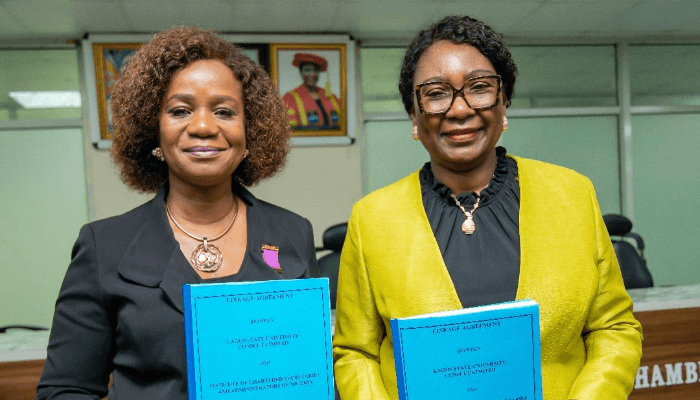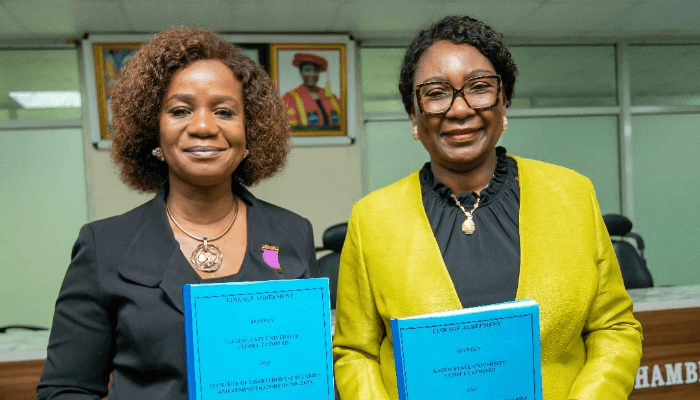 partnership to enhance human capital development” loading=”lazy” class=”pl” />
partnership to enhance human capital development” loading=”lazy” class=”pl” />
ICSAN and LASU Forge Strategic Partnership to Elevate Human Capital Growth
The Institute of Chartered Secretaries and Administrators of Nigeria (ICSAN) has taken a significant step forward in advancing human capital development by formalizing a collaborative agreement with Lagos State University (LASU). This alliance aims to foster enhanced educational and professional opportunities, aligning with Nigeria’s broader goals for workforce empowerment and capacity building.
Strengthening Educational Synergies for Future Leaders
Through this newly signed linkage, ICSAN and LASU intend to create a robust platform for knowledge exchange, skill acquisition, and professional mentorship. The partnership is designed to equip students and professionals with cutting-edge competencies in corporate governance, administration, and secretarial practices, which are critical in today’s dynamic business environment.
Commitment to Sustainable Human Capital Advancement
Recognizing the pivotal role of skilled human resources in national development, ICSAN has pledged to intensify efforts in nurturing talent and enhancing employability. This initiative is expected to contribute significantly to Nigeria’s economic growth by producing well-trained professionals ready to meet the challenges of the modern workplace.
Contextualizing the Partnership Amidst Nigeria’s Workforce Trends
With Nigeria’s youth population projected to reach over 200 million by 2050, according to the United Nations, the demand for quality education and professional training has never been more urgent. Collaborations like that of ICSAN and LASU are vital in addressing the skills gap and preparing a competent workforce capable of driving innovation and governance excellence.
Looking Ahead: Opportunities and Impact
This alliance opens doors for joint research projects, internships, and continuous professional development programs, benefiting both students and industry practitioners. By leveraging each institution’s strengths, the partnership is poised to set new standards in human capital development within Nigeria’s educational and corporate sectors.




















0 Comments